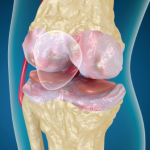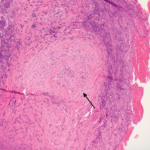A 14-year-old girl is referred to your office for fatigue and arthralgias. While you’re obtaining her past medical history, she divulges that she has had four episodes of bilateral parotitis, each lasting two weeks. An otolaryngologist evaluated her. She lacked sicca symptoms, had a normal complete blood count (CBC), normal inflammatory markers and a negative…








